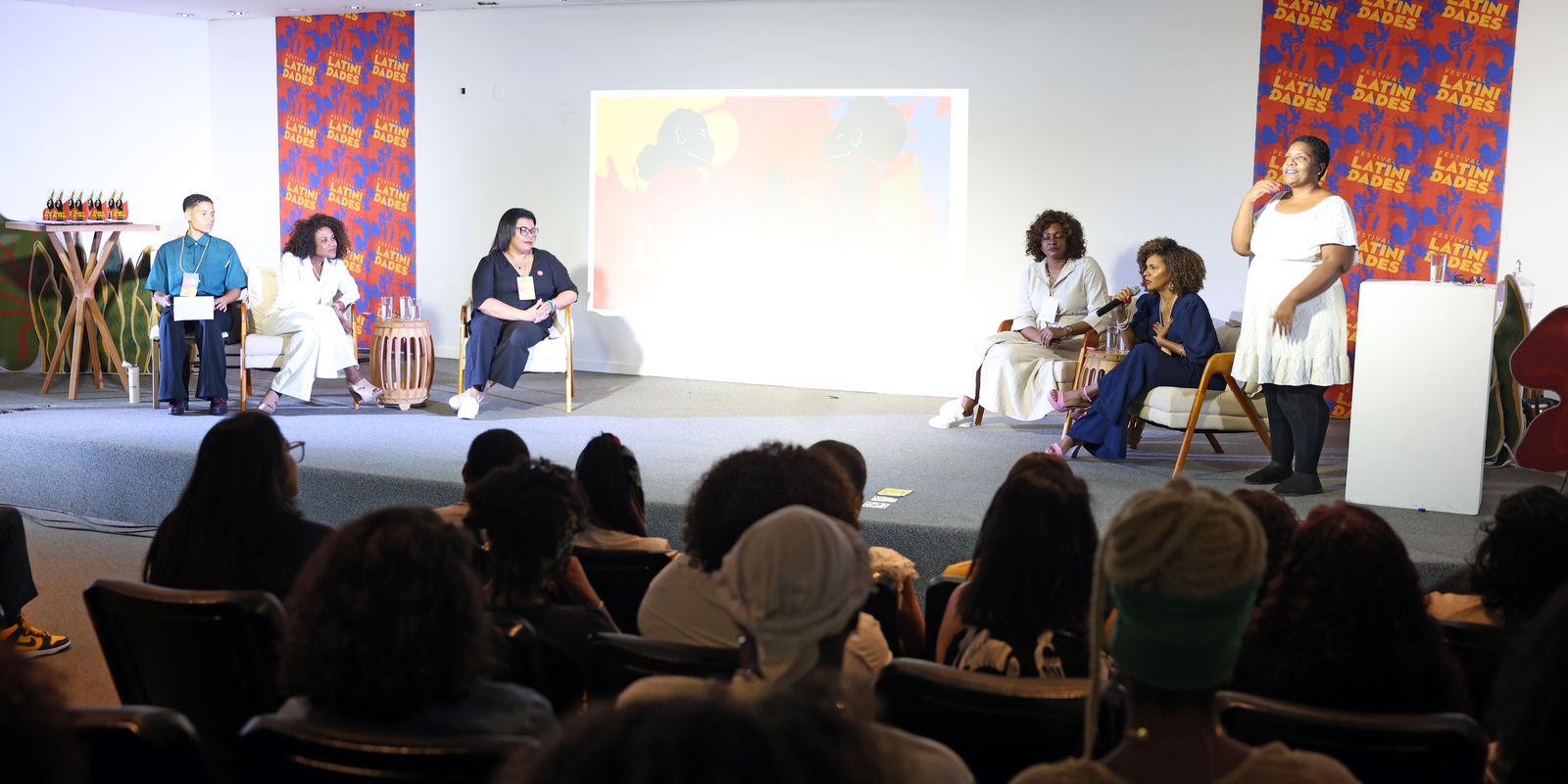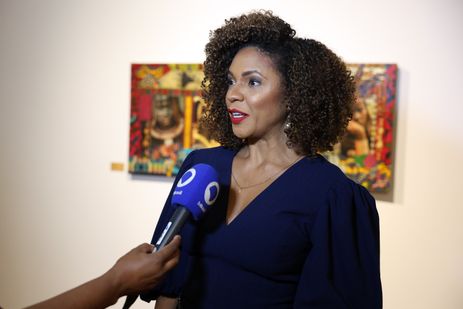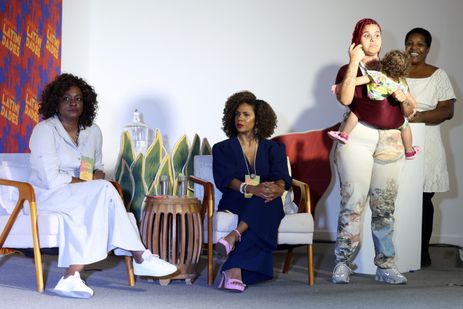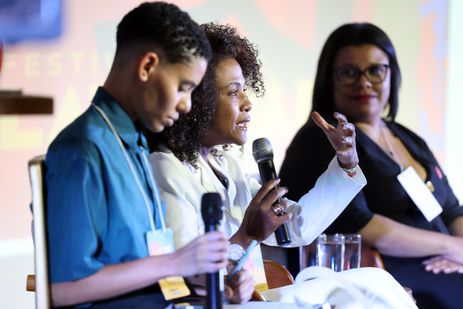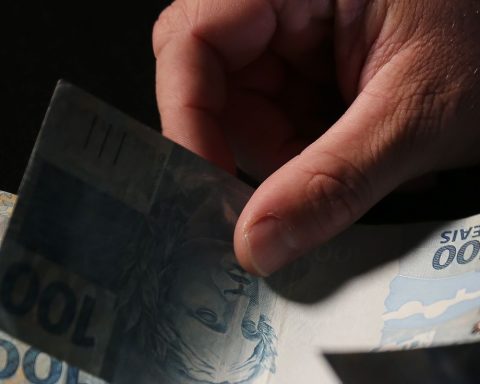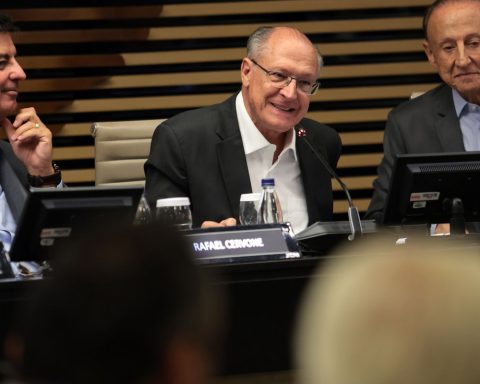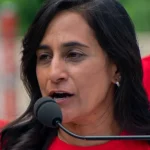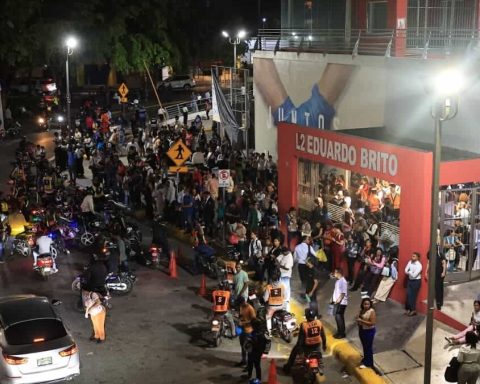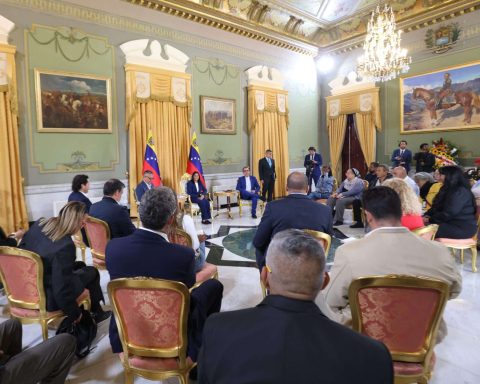Black professional journalists who are now in prominent positions in the media spoke this Friday (26) about what it is like to face racism in society to occupy spaces where they are minorities.
Presenter Luciana Barreto, who has worked on the channels Future, GNT, BandNews and on TV Bandeirantesand is currently the anchor of Reporter Brazilnewspaper of TV Braziltold how he faced poverty and prejudice to establish himself in his career.
“I’ve experienced several situations and several obstacles to get here. Like arriving at a makeup station and not having makeup for black skin. To get a position as a presenter, I heard from a friend of mine, who was also competing with me, a white woman, when I got in: ‘Wow, how cool that now they want a black presenter,’” she reported.
Luciana shared her experience in the debate “Black Women in the Media: Innovation and Impact in Public Communication” at the Latinidades Festival 2024, which takes place in Brasília. According to the journalist, it was on television that she understood the problem with her self-esteem.
“On television I came to understand how much our dreams are curtailed and violated. How much children in the 70s, 80s and 90s suffered deeply with their self-esteem, how much they were prevented from dreaming because of Brazilian television,” he added, remembering the lack of black people on the networks.
Also participating in the meeting was journalist Joyce Ribeiro, who today presents the Afternoon Newspaper at TV Cultura and has worked on the main news programs in the SBT and of the TV Record. Joyce was also the first black woman to host a presidential debate, in 2018.
“This journey has not been easy. Quite the opposite. I have heard some very harsh and difficult things throughout my career. Once a colleague gave me a suggestion, because she was a good friend of mine, saying that I needed to ask to leave. [do trabalho] because we have come a long way to be here and, to preserve myself, I had to ask to leave, among many other things”, he recalled.
Colombian journalist Mabel Lorena Lara also shared her experience on television in the Caribbean country, highlighting that she straightened her hair and tried to hide her personality in an attempt to be accepted in a predominantly white environment.
“After a long time and awards and recognition and being on television, I said: ‘This woman that you are awarding as the best in the news, also has curly hair’”, he said.
Lana added that she decided to let her hair down after a girl questioned her in Cartagena, Colombia. “A girl with her natural hair asked, ‘If you’re the black girl on the news, why don’t you look like us?’” she added.
Mabel Lorena Lara was awarded the Inspirational Leader award by the United Nations and the Swedish government in 2016. She was also a negotiator in the peace process with Colombian guerrillas.
“These experiences of racism and sexism are amplified when we are on television. People have a very specific view of us, our bodies, our hair and our butts,” she added.
The beginning
The three professionals had in common their insecurity at the beginning of their careers. They all thought that the media was not a space for them. According to Luciana Barreto, communication entered her life because she realized that the medium was a powerful tool for transformation.
“We were very peripheral and it was a neighborhood without asphalt or basic sanitation at that time, when I decided to study communications. I saw that journalism was a powerful tool, but it was a tool used by few,” he explained.
According to the presenter of TV CulturaJoyce Ribeiro, the world of communication attracted her a lot, but she thought it was something far from her reality.
“It wasn’t part of what I thought I could dream of. That already made me a little wary about pursuing this career. We take risks in all professions, but in the world of communications, which has always been so closed to us, I didn’t see myself,” he said.
For Colombian Mabel Lorena Lara, it was necessary to build self-esteem and understand that the media is a place where black women also deserve to be.
“At various times I thought it wasn’t a place for me. In my country, for decades, Afro women represented servitude, a bit of exoticism, the use of women’s bodies as attractive and little was said in the media,” she highlighted.
Black women in the media
In addition to the debate on the participation of black women in the media, the Latinidades 2024 Festival and the Commbne Institute created the Jacira da Silva Awardin honor of the journalist who was the first black woman to assume the presidency of the Union of Journalists of the Federal District, between 1995 and 1998, and founded the Commission of Journalists for Racial Equality (Cojira/DF).
In the Black Journalists category, the manager of Brazil AgencyJuliana Cézar Nunes, received the award alongside names such as Maju Coutinho, from Globo Networkand Basilia Rodrigues, from CNN.
In the Black Media category, the following were awarded: Affirmative Magazinethe news agency Black SoulO Cultne InstituteO Dark World and the Africanizecommunication vehicles that prioritize and give visibility to issues related to the black Brazilian population.
